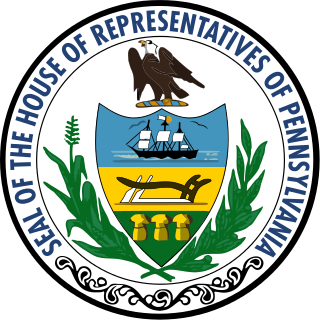The United States Senate elections of 1856 and 1857 were elections which had the young Republican Party assume its position as one of the United States's two main political parties. The Whigs and Free Soilers were gone by the time the next Congress began.
The United States Senate elections of 1844 and 1845 were elections which, coinciding with James K. Polk's election, had the Democratic Party retake control of the United States Senate, gaining a net total of eleven seats from the Whigs.
The United States Senate elections of 1880 and 1881 were elections that coincided with the presidential election of 1880, and had the Democratic Party lose five seats in the United States Senate. The newly elected Readjuster senator caucused with the Republicans, and the Republican Vice President's tie-breaking vote gave the Republicans the slightest majority. All of that changed September 19, 1881 when the Vice President ascended to the Presidency and the Senate became evenly-divided.
The United States Senate elections of 1840 and 1841 were elections which, corresponding with their Party's success in the 1840 presidential election, had the Whig Party take control of the United States Senate.
The United States Senate elections of 1832 and 1833 were elections that had the Anti-Jackson coalition assume control of the United States Senate from the Jacksonian coalition, despite Andrew Jackson's victory in the presidential election.
The United States Senate elections of 1830 and 1831 were elections that had Jacksonians gain one seat in the United States Senate from the Anti-Jacksonian coalition, but lose one seat to the short-lived Nullifier Party. By the time Congress first met in December 1831, however, the Jacksonians had a net loss of one seat.

The 1820-1821 United States Senate election in Pennsylvania was held on three separate dates from December 1820 to December 1821. On December 10, 1821, William Findlay was elected by the Pennsylvania General Assembly to the United States Senate.

The 1826 United States Senate election in Pennsylvania was held on December 12, 1826. Isaac D. Barnard was elected by the Pennsylvania General Assembly to the United States Senate.

The 1831 United States Senate special election in Pennsylvania was held on December 13, 1831. George M. Dallas was elected by the Pennsylvania General Assembly to the United States Senate.

The 1840 United States Senate election in Pennsylvania was held on January 14, 1840, after the regularly scheduled election in December 1838 was postponed due to the Buckshot War. Daniel Sturgeon was elected by the Pennsylvania General Assembly to the United States Senate.

The 1881 United States Senate election in Pennsylvania was held on thirty separate dates from January to February 1881. On February 23, 1881, John I. Mitchell was elected by the Pennsylvania General Assembly to the United States Senate.

The 1901 United States Senate special election in Pennsylvania was held on January 15, 1901, after the regularly scheduled legislative election in January—April 1899 failed to elect a Senator. Former Senator Matthew Quay, who had left the Senate for nearly two years because of the political stalemate, was again elected by the Pennsylvania General Assembly to the United States Senate.

The 1806 United States Senate election in Pennsylvania was held from December 9 to 16, 1806. Andrew Gregg was elected by the Pennsylvania General Assembly to the United States Senate.

The 1824–1825 United States Senate election in Pennsylvania was held between December 1824 and February 1825. William Marks was elected by the Pennsylvania General Assembly to the United States Senate.

The 1830 United States Senate election in Pennsylvania was held on from December 14 to 16, 1830. William Wilkins was elected by the Pennsylvania General Assembly to the United States Senate.

The 1834 United States Senate special election in Pennsylvania was held on December 6, 1834. Future President of the United States James Buchanan was elected by the Pennsylvania General Assembly to the United States Senate.

The 1845 United States Senate special election in Pennsylvania was held on March 13, 1845. Simon Cameron was elected by the Pennsylvania General Assembly to the United States Senate.

The 1849 United States Senate election in Pennsylvania was held on January 10, 1849. James Cooper was elected by the Pennsylvania General Assembly to the United States Senate.

The 1856 United States Senate election in Pennsylvania was held on January 14, 1856. William Bigler was elected by the Pennsylvania General Assembly to the United States Senate.








